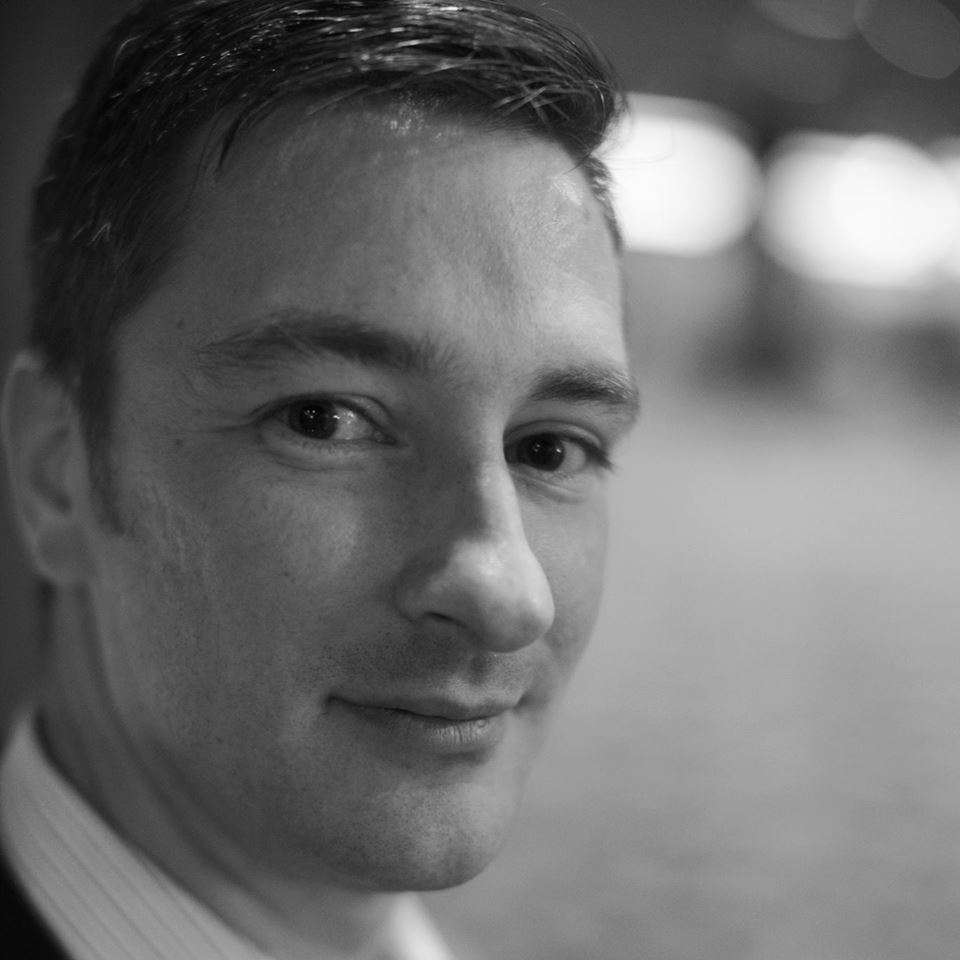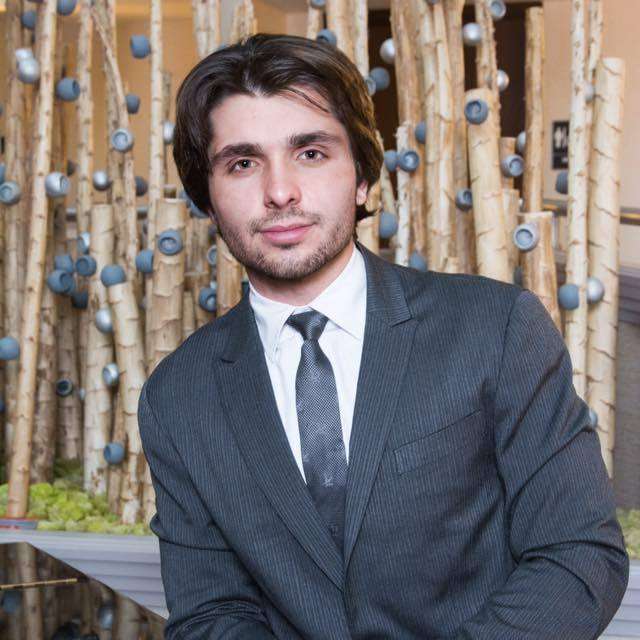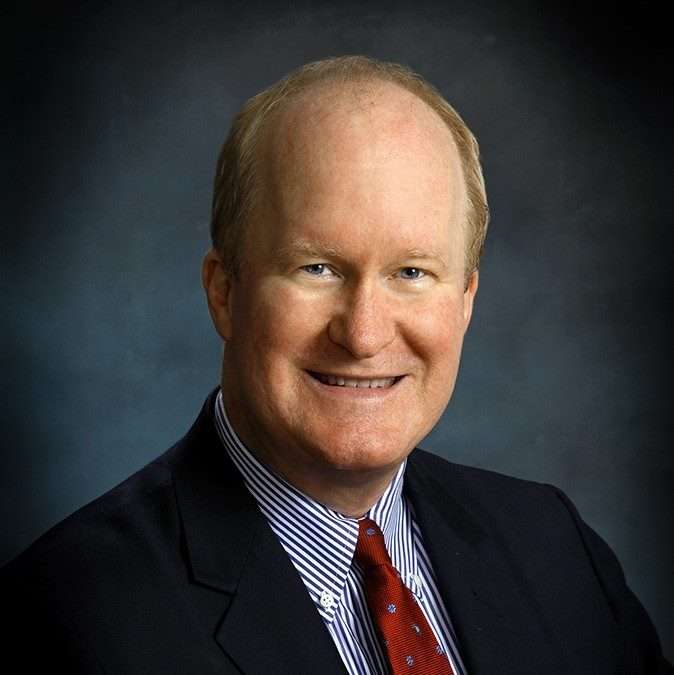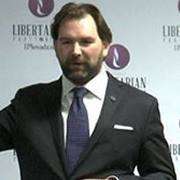The Libertarian Party's National Committee Chair Race: Meet the Contenders
Selecting a leader for the Libertarian National Committee will happen this weekend.
The Libertarian Party isn't only picking its presidential and vice presidential candidates at their National Convention in Orlando, which starts today. They'll also be picking a leader for the Libertarian National Committee (LNC), the national Party's governing body. (State affiliates of the Party have their own separate command structures.)
Incumbent Nicholas Sarwark wants to re-up, but he's got competition. What follows are profiles of prominent candidates and what they believe they can do for the Party.
• Nicholas Sarwark Sarwark (whose day job is in car sales) thinks he has positively influenced a formerly unhealthy culture around the LNC. "Meetings now start on time and end early and don't die from lack of quorum and if we have political differences we debate them, vote, and move forward." He says there is much less "backbiting and interminable arguments about nothing, really," under his chairmanship, which began in 2014. He had previously been chair of the Maryland L.P., and vice-chair of the Colorado L.P.

He's also made the operations of the LNC more transparent, "livestreaming every meeting so every Party member and interested member of the public can see how the national Committee is doing the business of the Party." He's proud that "we've never failed in a single petition drive in the time I've been chair, never told donors we are going to spend money on this" and not delivered.
And he's proud of what the Party in general has accomplished, under his leadership and previous leaders. "We never give up, and we put ourselves in the position to be the only option for every single American who can't abide Clinton or Trump. That's an amazing accomplishment and we did it by doing the trench work building up state by state, candidate by candidate, activist by activist, not by hitching our star to a celebrity like Nader like the Greens did. We're never going away. I want to flip more sitting state legislators," and he also thinks he's well equipped to be the Party's standing media spokesperson through what promises to be a very busy election season.
He delivers, he says, a "clear, bold vision of libertarianism in a way that resonates with people and isn't overly pedantic or theoretical." He's averaged a media interview a day in the past month, an "unprecedented amount of media coverage for the L.P." at this point in the election cycle.
He also cautions the Party that changing leadership right in the middle of an election year might not be a great idea. He's presided over, as The Hill reported yesterday, very impressive donation numbers, $205,000 in April ("largest monthly haul since 2004") and they are looking at possibly doubling that for May. "I've never been anything but a Libertarian, and I'm in this for the long haul, it's a lifetime mission to make things better for my kids."
• Charles Peralo Peralo has done work in the Bitcoin field—while he was cagey about how much he profited, he says he was buying into Bitcoin when it cost less than $2, and it's now floating around $468 after hitting highs of over $1,000 in late 2014—and is an inventor in the food space and helped fundraise for the Seasteading Institute. He launched the movement website Being Libertarian. He knows a lot of people who know a lot of people, and has reached out regarding the Party to the likes of Mark Cuban and Mark Sanford.

Like many people, he sees that "Trump is a bigger opportunity for growth than we've seen, we can probably do better than at any point in our history. We've got two governors running doing amazing with media, [John] McAfee is amazing with media, really any of the [the top 3 contenders, including Austin Petersen] can break 2 percent and even go beyond." (Peralo admits to being a bit worried about the P.R. aspects of the wild rises and falls of the penny stock company McAfee was announced as CEO of in the middle of the campaign, MGT Capital Investments.)
Peralo hopes to launch a national L.P. app to help connect you with people in your region, something that could "turn into a LegalZoom for running for office, show you how in a few clicks." He also wants to create an "affiliate" status as a way to get people giving to the L.P. who might not be ready to join the Party, "so we can go to CPAC or Tea Party events and walk out with over a hundred new signups for an affiliate program," rather than tabling all day and being lucky to sign up 3 full-fledged Party members.
Peralo thinks the movement/Party needs to create web portals and organization to bring people into alliance with the L.P. on single issues like ending the drug war, cutting military spending, hoping to create places where the Party could be promoted to huge groups based on single issues who might not think about it otherwise.
While data is hard to come by pre-election, Peralo says he's confident he's resonating with the delegates he's met at a few state conventions and who he communicates with online, but says that his opponents—the incumbent Sarwark and former (Mark Rutherford of Indiana) or current (Brett Pojunis of Nevada) state Party chiefs—"they know how to run third parties, but I think more about what I saw when the Tea Party got stared, when Occupy happened, I was involved in the Ron Paul campaign—I know how movements take off."
While Sarwark, Peralo says, makes Party members and activists feel good by stressing the LNC chair should be the least important person in the L.P., compared to candidates and activists, Peralo sees the position as potentially "the most important person who gets the least thanks" and is satisfied with that; he doesn't want to be the guy on TV every day representing the L.P.
To do so, he isn't worried about particular Party prerogatives. He openly reached out to lots of prominent Republicans asking them to come to the L.P. convention, even offering to pay for Mitt Romney's ticket. He also wants to reach outside the current Party confines for "people who never vote, those waiting for Kanye West in 2020." But he's not too bummed by the anti-libertarian streak so dominating contemporary politics between Trump and Sanders; he thinks Americans don't hate freedom, he just thinks they don't necessarily understand economics well enough to see the links between government intervention and wealth and liberty. "We do need to be an education Party, I think we can be a more intellectual movement" compared to some other recent popular political waves.
Peralo says his intention if he gets to run the LNC is, "I want to bring a business approach, scale the growth and make us a real political movement like Occupy, Black Lives Matter, and the Tea Party, make 2018 better and then 2020 better again, and get a better field of candidates running for president. There are things we can do with the L.P. but at the current stage we are too much a small ball game. I want to change that. I want to grow this Party and make this the next big political movement."
• Mark Rutherford Rutherford has a long career with the Party, having been state chair of the Indiana L.P. from 2000-07 and more recently ran the Libertarian Party's National Campaign Committee. He's a practicing attorney in Indianapolis working in business law litigation. He considers his record in Indiana in media, locked-in ballot access, affiliate organization and the election of nine partisan Libertarians around the state to be his best selling point for delegates choosing the next Chair.

He credits the Indiana L.P. with having influenced actual property tax legislation in the state, saying parts of an old L.P. plan in the state were "stolen" by the legislature. Rutherford has gotten the L.P. taken seriously enough in state politics that he was appointed by the governor to the state's Public Defender Commission, a role of which he's proud. "We've done a lot to improve the standards for public defender qualification, helping fight abusive prosecutors and making sure counties have better than decent public defenders."
He intends to be a big media chair if he wins the LNC chief position. "The news media needs to be conquered. Don't be waiting for interviews. The first thing I'll do if elected Chair is go to CBS, NBC,ABC, CNN, and just be aggressive, get them to meet with you. If you act as if you are important, you are important. It's important to be in national media reporting even if it's not always positive; we have to be part of what people are thinking about."
Rutherford is proud of his successful background in Indiana, moving and shaking and communicating in "all sort of clubs, political organizations, lawyer's organizations, committees and subcommittees," which he thinks has given him the committee management and communication skills the Party should seek in its LNC chair. He's older than his opponents, he points out, which gives him the "experience and skill set" in the real world to take advantage of 2016's unique possibilities of the L.P. He says in Indiana he's manages to convince all sorts of other politicians that the L.P. is to be taken seriously.
He thinks the Party needs be more visible to other aspects of the larger libertarian movement, particularly ones with money, and be more proactive in crowing about any victories they have with getting Libertarians on the local and state level in elected office. He thinks the bumps this year in funding and attention will see the usual dips between presidential years if the Party does "nothing to keep people excited" in the off-years.
While pleased that this year is seeing membership go up, Rutherford notes that under the regime of incumbent Sarwark, they are still down from two years ago's dues-paying member numbers. In his estimation, the current national apparatus is "disorganized, the publicity mailings are not positive, we don't recruit enough good candidates, donors don't see results and when there are good results they are awful at broadcasting what they are. That all needs to change."
• Brett Pojunis Pojunis, with a background in nightclub management and nightlife promotion in Las Vegas, is proud that he's gotten what he says was a disaster of a state Party back on its feet. While their growth rate makes them the fastest-growing Party in the country, he says, the raw numbers of current dues paying members is still just 172. (Numbers that low are far from unusual for state Libertarian Parties, with more than 15 having fewer than 100 active dues-paying members.)

He claims credit for the Party for crafting and pushing into law a Nevada bill to define "independent contractor" to help prevent various restrictive employee/employer regulations applying where they don't legitimately belong, hosting a "political speed dating" event that brought out lots of state candidates which led to an L.P. issued voters' guide he insists helped make them an influential and noticed player in state politics. He's presided over the L.P. getting its one current state legislator, helping convince John Moore, a state Assemblyman, to switch from Republican to Libertarian mid-term.
Pojunis is proud of helping grow a student group at UNLV to larger than comparative Republican and Democratic ones. He has ambitiously detailed plans for revamping the Party's database system. He also insists the Party must hire professional political P.R. to improve their media impact, and is amazed this isn't already happening. His success in getting The Blaze to broadcast the Libertarian Party presidential debate the Nevada L.P. hosted this month is just a sample of what he says he can promise the Party in promotional terms.
While stressing that the National LNC chair has no power but the power to give help and advice to the states, he thinks sometimes the Party runs more candidates than it has quality people to run, or resources to support meaningfully, and that running too many can be a "disservice to the Party, and to those candidates."
"I want to offer knowledge, tools and resources for states to be successful, but states can and will do what they want. But if they follow our lead, they will do better," he insists.
Interviewing him on the wraparound patio of John McAfee's suit in Vegas after that debate, Pojunis is impassioned on how much he's given to the Party, in time and money, and how much more he wants to give. He intends to run for state Senate in Nevada in 2018 and feels he's made enough headway in the state's political community he could win. "I don't want [the L.P.] to be a circus," he says. "I've worked too goddamn hard for this."
I ask, if he's so well positioned as a player of sorts in Nevada politics, and has such burning political ambition, he never considered just running for office (with his current ideas intact) as Republican or Democrat?
"Because I'm a Libertarian. I'm not a Republican or a Democrat. I can't do it in good conscience. I'm not a bigot, I'm not a racist, I'm a capitalist and a free-market guy."
While he doesn't want to slam his opponents, he thinks what he's done in Nevada should be all the credentials he needs to win. "If any state wants to be successful, we can train them to use the same tools we had here. I want to grow this Party, man. That's all I want to do."


Show Comments (19)